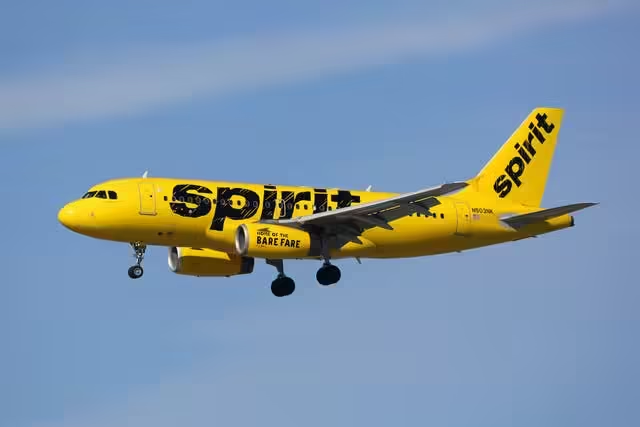
Spirit Airlines has announced the suspension of one of its international routes, a decision that comes amid ongoing efforts to optimize its flight network and improve overall operational efficiency. The route in question, which connected Fort Lauderdale, Florida, to Managua, Nicaragua, will cease operations starting next month. This move has sparked a mix of reactions from passengers, industry analysts, and local communities impacted by the change.
The decision to suspend this route is part of Spirit Airlines’ broader strategy to streamline its operations and allocate resources more effectively. According to the airline, several factors influenced this decision, including fluctuating demand, economic considerations, and the desire to strengthen other, more profitable routes. By reallocating resources, Spirit aims to enhance service quality and reliability across its network, ensuring better experiences for its passengers.
For many passengers who frequently traveled between Fort Lauderdale and Managua, the announcement came as a disappointment. This route had provided a convenient and affordable option for those visiting family, conducting business, or exploring tourism opportunities in Nicaragua. Regular travelers will now need to seek alternative flights, potentially facing higher costs and longer travel times.
Local communities in both Fort Lauderdale and Managua will also feel the impact of this suspension. In Fort Lauderdale, businesses that relied on a steady stream of travelers from Nicaragua may see a decrease in customer traffic. Similarly, in Managua, the suspension could affect the local economy, particularly sectors such as hospitality, tourism, and trade that benefited from the connectivity provided by Spirit Airlines.
Industry analysts have weighed in on the decision, noting that while it may seem abrupt, such route adjustments are not uncommon in the airline industry. Airlines constantly assess their route networks to respond to changing market conditions, economic trends, and competitive pressures. In this context, suspending underperforming routes can be a necessary step to maintain overall profitability and sustainability.
Spirit Airlines has assured affected passengers that it will provide support during this transition. The airline has promised to offer rebooking options, refunds, and assistance in finding alternative travel arrangements. Additionally, Spirit has emphasized its commitment to maintaining robust service on its remaining routes, particularly those connecting to other key destinations in the Caribbean and Latin America.
The suspension also opens up discussions about potential future developments for Spirit Airlines. Some analysts speculate that the airline might introduce new routes or increase frequencies on existing popular routes as part of its network optimization strategy. This could include expanding services to other high-demand destinations or focusing on enhancing connections within its domestic network.
For Spirit Airlines, the suspension of the Fort Lauderdale-Managua route represents a tactical decision aimed at strengthening its overall operational framework. The airline remains committed to offering affordable and reliable air travel, with a focus on improving customer satisfaction and operational efficiency. As the airline industry continues to evolve, Spirit’s ability to adapt and make strategic decisions will be crucial in navigating the challenges and opportunities that lie ahead.
In conclusion, the suspension of Spirit Airlines’ Fort Lauderdale-Managua route is a significant development with implications for passengers, local economies, and the airline itself. While the immediate reaction may be one of disappointment for some, the move is part of a broader effort to optimize the airline’s network and ensure long-term sustainability. As Spirit Airlines navigates this transition, its commitment to providing affordable and efficient air travel remains at the forefront of its operations.